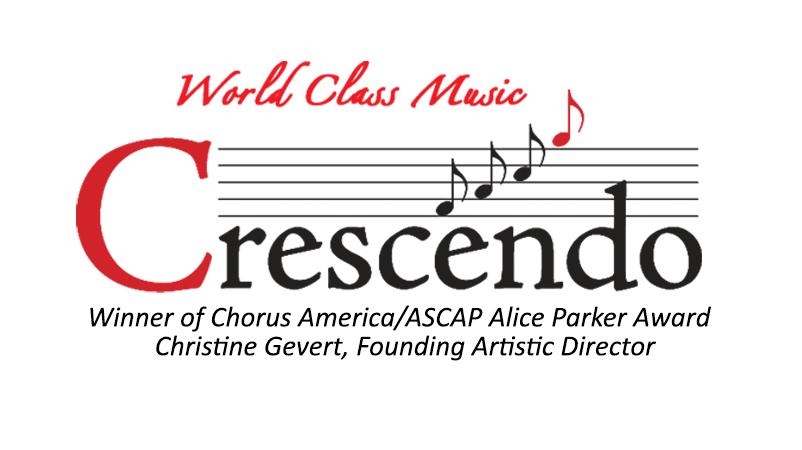Carissimi – Jephte and Missa L’Homme armé
Recorded:
March 24, 2024 @ 4:00 PM
Trinity Church,
Lakeville, CT
Performers:
Christina Kay, soprano
Jordan Rose Lee, soprano
Sarah Fay, soprano
Laura Evans, alto
Tuesday Rupp, alto
Mary Verdi, alto
Pablo Bustos, tenor
Matthew Kreta, tenor
Douglas Williams, bass-baritone
Jim Barrett, bass
John-Arthur Miller, bass
Crescendo Vocal Ensemble
Crescendo Period Instrument Ensemble
Jane Hershey, Anne Legêne, Erica Warnock – viola da gamba
Rachel Begley – dulcian, recorder
Christa Patton – harp, recorder
Hideki Yamaya – theorbo
Christine Gevert – organ, virginal, direction
Program
Francesco Cavalli (1602–1676) • Prologo from L’Egisto – instrumental
Giacomo Carissimi (1605-1674) • “Historia di Jephte” à 6 voci (1648)
- Historicus: Cum vocasset in proelium
- Jephte: Si tradiderit Dominus
- Coro: Transivit ergo Jephte
- Historicus à 2: Et clangebant tubae
- Historicus: Fugite, fugite, credite, credite impii
- Coro: Fugite, fugite, credite, credite impii
Giacomo Carissimi, arr. Gevert • “Transivit ergo Jephte” – instrumental
Giacomo Carissimi (1605-1674) • “Historia di Jephte” à 6 voci (1648)
- Historicus: Et percussit Jephte
- Historicus à 3: Et ululantes filii Ammon
- Historicus: Cum autem victor Jephte
Giacomo Carissimi (1605-1674) • “Historia di Jephte” à 6 voci (1648)
- Filia: Incipite in tympanis / Hymnum cantemus Domino
- Cantus à 2: Hymnum cantemus Domino
- Filia: Cantate mecum Domino
- Coro: Cantemus omnes Domino
Francesco Cavalli • Atto 1, Scena 1 from L’Egisto – instrumental
Giacomo Carissimi (1605-1674) • “Historia di Jephte” à 6 voci (1648)
- Historicus: Cum vidisset Jephte
- Jephte: Heu, heu mihi filia mea, heu!
- Filia: Cur ego te pater decepi
- Jepthe: Aperui os meum ad Dominum
- Filia: Pater mi
- Jepthe: Quid poterit animam tuam
- Filia: Dimitte me
- Jepthe: Vade filia
- Historicus à 4: Abiit ergo in montes filia Jephte
Giacomo Carissimi • Adagio No. 1 from Sonata in D minor – Recorder and basso continuo
Giacomo Carissimi (1605-1674) • “Historia di Jephte” à 6 voci (1648)
- Filia et Eccho: Plorate, plorate colles
Giacomo Carissimi • Adagio No. 3 from Sonata in D minor – Recorder and basso continuo
Giacomo Carissimi (1605-1674) • “Historia di Jephte” à 6 voci (1648)
- Coro: Plorate, filii Israel
~ INTERMISSION ~
Anonymous, medieval chanson – L’Homme armé
Giacomo Carissimi (attr.) • Missa Duodecis Vocibus cui titulus L’Homme armé
- Kyrie
Adriano Banchieri (1568–1634) • Canzon nona “La Camerina” sopra “Veni dilecta me”- Viola da gambas and organ
Giacomo Carissimi (attr.) • Missa Duodecis Vocibus cui titulus L’Homme armé
- Gloria
Adriano Banchieri La Battaglia – instrumental
Giacomo Carissimi (attr.) • Missa Duodecis Vocibus cui titulus L’Homme armé
- Credo Alessandro
Piccinini (1566 –1638) Toccata VI – theorbo
Giacomo Carissimi (attr.) • Missa Duodecis Vocibus cui titulus L’Homme armé
- Sanctus
- Agnus Dei
Learn More About All of the Performers
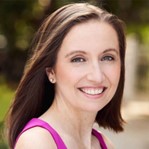 Soprano Christina Kay (Filia) enjoys a multi-faceted career singing everything from opera, oratorio, and musical theater, to early, contemporary, and folk music. This season is her second as a member of The Western Wind, an internationally acclaimed vocal sextet devoted to the special beauty and variety of a cappella music. In October 2023, the group premiered Cultivars by Kamala Sankaram in the Brooklyn Botanical Gardens, where a bee made a surprise appearance up one of Christina’s pant legs during the performance (this is the last time she will ever wear wide-legged pants when singing in a garden). In February she sang the leading role of Maria Maddalena in a semi-staged version of Giovanni Lorenzo Lulier’s oratorio Santa Maria de’ Pazzi with Academy of Sacred Drama. In March she joined the New York Virtuoso Singers performance of Composers Without Borders. She is Co-Director and Baroque Vocal Specialist for the Baroque Opera Workshop at Queens College, taking place this coming June.
Soprano Christina Kay (Filia) enjoys a multi-faceted career singing everything from opera, oratorio, and musical theater, to early, contemporary, and folk music. This season is her second as a member of The Western Wind, an internationally acclaimed vocal sextet devoted to the special beauty and variety of a cappella music. In October 2023, the group premiered Cultivars by Kamala Sankaram in the Brooklyn Botanical Gardens, where a bee made a surprise appearance up one of Christina’s pant legs during the performance (this is the last time she will ever wear wide-legged pants when singing in a garden). In February she sang the leading role of Maria Maddalena in a semi-staged version of Giovanni Lorenzo Lulier’s oratorio Santa Maria de’ Pazzi with Academy of Sacred Drama. In March she joined the New York Virtuoso Singers performance of Composers Without Borders. She is Co-Director and Baroque Vocal Specialist for the Baroque Opera Workshop at Queens College, taking place this coming June.
In addition to crooning with bees, Christina has appeared as soprano soloist in Handel’s Messiah with MasterWork Chorus and Orchestra at Carnegie Hall, and has been seen on the opera stage in premieres by David Chesky (Daphne, La Farranucci) and Timothy Lee Miller (Annabelle, The Bird Lady). She made her European debut at the 2018 New Opera Days Ostrava Festiva, where she was accidentally locked in the closet of a renovated coal mine during a show and had to climb through the ceiling via a ladder to escape. Against her better judgment, she returned to the Czech Republic later that year to reprise the role of Lead Singer in Petr Kotik’s Master-Pieces (where she was very fortunately not locked in a closet again). Christina regularly appears with ARTEK Early Music and recently co-founded her own group, Filigree, an ensemble that enriches modern historical performance by pushing the boundaries of improvised ornamentation, rhetorical drama, and creative programming to reshape the modern concert experience.
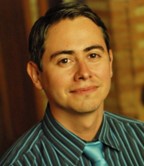 Pablo Bustos, tenor (Jephte) holds both bachelor’s and master’s degrees in vocal performance from the Eastman School of Music. Highlights of concert appearances include Handel’s Ode to St.
Pablo Bustos, tenor (Jephte) holds both bachelor’s and master’s degrees in vocal performance from the Eastman School of Music. Highlights of concert appearances include Handel’s Ode to St.
Cecilia, conducted by Ton Koopman at Carnegie Hall, the Evangelist in both of Bach’s Passions with the Voices Ensemble, the title roles in Handel’s Joshua and Judas Maccabaeus, as well as
Britten’s Serenade for tenor, horn and strings with the Fort Street Presbyterian Chorale.
Operatic engagements include Alfred in Strauss’ Die Fledermaus, the Witch in Humperdinck’s Hansel and Gretel,Tamino in Mozart’s Die Zauberflote with the Opera Theatre of Weston, VT.
His discography includes the Lutheran Masses and Advent Cantatas of J. S. Bach with the Publick Musick Baroque Orchestra and Chorus (Musica Omnia).
This summer, Pablo makes his debut at the Bach Fest Leipzig, where he will perform as both an ensemble member and soloist with the Malaysia Bach Festival Singers and Orchestra, led by Dr. David Chin. The concert tour will feature performances in three significant cities associated with Bach: Eisenach, Arnstadt, and Leipzig. The group will present a selection of cantatas and motets, including BWVs 92, 118, 125, and 229.
Pablo also eagerly anticipates his recital appearance at the 20th anniversary of the Barcelona Festival of Song where he will be singing a program showcasing the work of Chilean composers and poets.
He currently resides in Rochester, NY, where he teaches at the Eastman School of Music and Nazareth University, and is also the Music Director at the First Unitarian Church of Rochester.
 Douglas Williams, bass-baritone, (Historicus) sings this season as a soloist with the London Symphony Orchestra in Stravinsky’s Pulcinella, with the Swedish Chamber Orchestra in Stravinsky’s The Rake’s Progress, and the Brahms German Requiem with the Alabama Symphony, among a host of projects that include German Lieder, popular song, English baroque, and French romantic opera. A new transplant to the Berkshires, Douglas appeared in Hudson Hall’s critically-claimed production of Handel’s Rodelinda this past October. In opera and concert he has sung with major baroque and modern orchestras throughout North American and Europe. Upcoming performances this year include a new rock opera with the American Modern Opera Company at the Clark Institute, and
Douglas Williams, bass-baritone, (Historicus) sings this season as a soloist with the London Symphony Orchestra in Stravinsky’s Pulcinella, with the Swedish Chamber Orchestra in Stravinsky’s The Rake’s Progress, and the Brahms German Requiem with the Alabama Symphony, among a host of projects that include German Lieder, popular song, English baroque, and French romantic opera. A new transplant to the Berkshires, Douglas appeared in Hudson Hall’s critically-claimed production of Handel’s Rodelinda this past October. In opera and concert he has sung with major baroque and modern orchestras throughout North American and Europe. Upcoming performances this year include a new rock opera with the American Modern Opera Company at the Clark Institute, and
Handel’s Messiah with the San Francisco Symphony. Douglas trained at the New England Conservatory, Yale School of Music, and Tanglewood Music Center. He is also a writer and an actor.
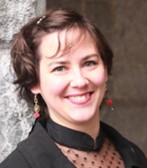 Jordan Rose Lee, soprano, (Cantus, Historicus) has been a soloist for many East Coast ensembles, such as Connecticut Lyric Opera (Young Artist Program), Gaudeamus, St. John’s Choir, St. Andrew’s Music in the Nave, and Stockbridge Festival Chorus. She has performed recitals with special interest in American Art Song, and promoting the work of women composers.
Jordan Rose Lee, soprano, (Cantus, Historicus) has been a soloist for many East Coast ensembles, such as Connecticut Lyric Opera (Young Artist Program), Gaudeamus, St. John’s Choir, St. Andrew’s Music in the Nave, and Stockbridge Festival Chorus. She has performed recitals with special interest in American Art Song, and promoting the work of women composers.
Jordan received a Bachelor of Music degree from Western Connecticut State University, where she was featured as a soloist with the Concert Choir and Chamber Singers, and played several leading roles in the Opera Ensemble’s productions. She was the singer of choice for the composition students at WCSU, where she debuted several pieces. She has been a soloist and section leader for Crescendo since 2007, and she is the soprano section leader and soloist for South Church Chancel Choir in New Britain, CT.
Recently Jordan completed her studies in Speech and Language Pathology at Southern Connecticut State University, and currently works with young children and families with communication disorders.
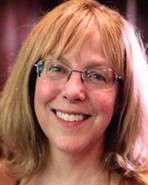 Sarah Fay, soprano, (Cantus, Historicus) works as a vocal coach for the Musical Theater Performance program at WCSU, and is an adjunct voice and piano teacher at The Frederick Gunn School in Washington, CT. She is music director and organist for the First Congregational Church in New Milford, vocal performance teacher at FineLine Theater Arts, and founding member of ensemble earlybird. She holds a Bachelor of Music degree from Boston University, and Master of Science in Music Education from WCSU.
Sarah Fay, soprano, (Cantus, Historicus) works as a vocal coach for the Musical Theater Performance program at WCSU, and is an adjunct voice and piano teacher at The Frederick Gunn School in Washington, CT. She is music director and organist for the First Congregational Church in New Milford, vocal performance teacher at FineLine Theater Arts, and founding member of ensemble earlybird. She holds a Bachelor of Music degree from Boston University, and Master of Science in Music Education from WCSU.
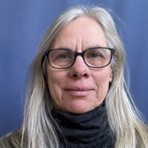 Alto Laura Evans (Historicus) has sung in mixed ensembles throughout the tri-state region as section leader and soloist. The groups include CONCORA, Composers Choir, Crescendo, Hartford Chorale and New Haven Oratorio Choir. A cantor for area churches, she is currently at Valley Presbyterian Church in Brookfield, CT. She is a founding member of the ensemble earlybird, whose favorite concert venue is a former railroad tunnel in Washington, Connecticut.
Alto Laura Evans (Historicus) has sung in mixed ensembles throughout the tri-state region as section leader and soloist. The groups include CONCORA, Composers Choir, Crescendo, Hartford Chorale and New Haven Oratorio Choir. A cantor for area churches, she is currently at Valley Presbyterian Church in Brookfield, CT. She is a founding member of the ensemble earlybird, whose favorite concert venue is a former railroad tunnel in Washington, Connecticut.
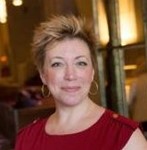 Tuesday Rupp, alto, is a classically trained singer, recording artist, and choral conductor with a long history in early music performance. Originally from Portland, Oregon, Tuesday has been a regular member of and frequent soloist with Cappella Romana, Cantores in Ecclesia, Portland Baroque Orchestra Chorus, and Resonance Ensemble. She is the co-founder of the women’s vocal ensemble In Mulieribus, now in its 17th concert season. She has a Master of Divinity degree from Yale Divinity School, with certificates from the Institute of Sacred Music and Berkeley Divinity School, a Master in Music from Portland State University and a Bachelor in Music from Boston University. Tuesday is an ordained Episcopal Priest, serving as rector of historic St. Paul’s Church in Woodbury, Connecticut.
Tuesday Rupp, alto, is a classically trained singer, recording artist, and choral conductor with a long history in early music performance. Originally from Portland, Oregon, Tuesday has been a regular member of and frequent soloist with Cappella Romana, Cantores in Ecclesia, Portland Baroque Orchestra Chorus, and Resonance Ensemble. She is the co-founder of the women’s vocal ensemble In Mulieribus, now in its 17th concert season. She has a Master of Divinity degree from Yale Divinity School, with certificates from the Institute of Sacred Music and Berkeley Divinity School, a Master in Music from Portland State University and a Bachelor in Music from Boston University. Tuesday is an ordained Episcopal Priest, serving as rector of historic St. Paul’s Church in Woodbury, Connecticut.
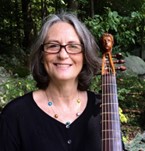 Jane Hershey, viola da gamba, studied at Tufts University, the Longy School of Music, and at the Royal Conservatory in The Hague with Wieland Kuijken. She began her career touring and recording with the Boston Camerata, and has gone on to perform with many Boston area performing organizations, and Hesperus and the Smithsonian Chamber Orchestra in Washington DC. She has performed in many festivals such as Aston Magna, Amherst Early Music, Monadnock Music, and for the Viola da Gamba Society of America. She performed with Laura Jeppesen in Trio Charivary and the Carthage Consort in many venues around New England, including at the Loeb Drama Center. She is currently a member of Arcadia Viols, making numerous appearances with the Folger Consort in D.C. An avid teacher, she is on the faculties of the Longy School of Music of Bard College, Powers Music School, and directs the Tufts Early Music Ensemble.
Jane Hershey, viola da gamba, studied at Tufts University, the Longy School of Music, and at the Royal Conservatory in The Hague with Wieland Kuijken. She began her career touring and recording with the Boston Camerata, and has gone on to perform with many Boston area performing organizations, and Hesperus and the Smithsonian Chamber Orchestra in Washington DC. She has performed in many festivals such as Aston Magna, Amherst Early Music, Monadnock Music, and for the Viola da Gamba Society of America. She performed with Laura Jeppesen in Trio Charivary and the Carthage Consort in many venues around New England, including at the Loeb Drama Center. She is currently a member of Arcadia Viols, making numerous appearances with the Folger Consort in D.C. An avid teacher, she is on the faculties of the Longy School of Music of Bard College, Powers Music School, and directs the Tufts Early Music Ensemble.
Born in the Netherlands in a family of musicians, Anne Legêne, viola da gamba, performs chamber music regularly on cello and viola da gamba with her husband, pianist and harpsichordist Larry Wallach, with harpsichordist Mariken Palmboom, and with her sister, recorder virtuosa Eva Legêne. She is a member of the viol consorts Long & Away and the Arcadia Viols.
Anne has played with numerous ensembles and soloists in the North East. She conducts the chamber orchestra and Collegium at Bard College at Simon’s Rock, and teaches cello and viola da gamba at her home studio in Great Barrington and at Simon’s Rock. She is past president of the Viola da Gamba Society of New England. Anne received a Graduate Performance Diploma in Early Music from the Longy School in Cambridge, MA, where she studied viola da gamba with Jane Hershey, and baroque cello with Phoebe Carrai.
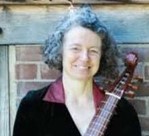 Erica Warnock, viola da gamba, studied with Grace Feldman in New Haven and Lawrence Lipnik in New York. She is a member of ensemble earlybird where she has the delight of playing and performing with singers regularly.
Erica Warnock, viola da gamba, studied with Grace Feldman in New Haven and Lawrence Lipnik in New York. She is a member of ensemble earlybird where she has the delight of playing and performing with singers regularly.
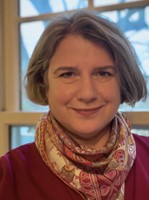 Rachel Begley, dulcian and recorder, performs as a soloist and with ensembles across North America, and has been hailed for her virtuosic and sensitive playing on both recorders and historical bassoons. Based in the New York area, she has performed in almost all the city’s major performance venues for classical music, in addition to appearances with groups throughout the tri-state area and beyond. Her recent engagements include The Metropolitan Opera, Apollo’s Fire, Newberry Consort, Tempesta di Mare, Bach Vespers, The Clarion Society, Trinity Baroque Orchestra, Play of Daniel at The Cloisters, American Classical Orchestra, Boston Early Music Festival, and Early Music New York. In addition to her work in early music, she has also premiered solo works for recorder by such luminaries as Leonard Bernstein and Joan Tower. Her recording credits include both recorder and dulcian, on recordings of Renaissance and Baroque music as well as soundtracks including Disney’s “Casanova”, the Warner Brothers documentary, “The Mystery of Dante”, a modern adaptation of “Macbeth”, and the Showtime series “The Twelfth Victim”. Rachel was a Visiting Scholar at the Early Music Institute at Indiana University, and she earned a Doctor of Musical Arts degree in Recorder and Early Music from SUNY Stony Brook. In addition to her private studio, she teaches at festivals, workshops, universities and conservatories in both North America and Europe, and maintains a wide-reaching online teaching presence. She is very active in community development for recorder players in both the US and Canada, and in addition to serving as Music Director for the Recorder Society of Long Island for almost three decades, she is the founding Music Director of the North American Virtual Recorder Society.
Rachel Begley, dulcian and recorder, performs as a soloist and with ensembles across North America, and has been hailed for her virtuosic and sensitive playing on both recorders and historical bassoons. Based in the New York area, she has performed in almost all the city’s major performance venues for classical music, in addition to appearances with groups throughout the tri-state area and beyond. Her recent engagements include The Metropolitan Opera, Apollo’s Fire, Newberry Consort, Tempesta di Mare, Bach Vespers, The Clarion Society, Trinity Baroque Orchestra, Play of Daniel at The Cloisters, American Classical Orchestra, Boston Early Music Festival, and Early Music New York. In addition to her work in early music, she has also premiered solo works for recorder by such luminaries as Leonard Bernstein and Joan Tower. Her recording credits include both recorder and dulcian, on recordings of Renaissance and Baroque music as well as soundtracks including Disney’s “Casanova”, the Warner Brothers documentary, “The Mystery of Dante”, a modern adaptation of “Macbeth”, and the Showtime series “The Twelfth Victim”. Rachel was a Visiting Scholar at the Early Music Institute at Indiana University, and she earned a Doctor of Musical Arts degree in Recorder and Early Music from SUNY Stony Brook. In addition to her private studio, she teaches at festivals, workshops, universities and conservatories in both North America and Europe, and maintains a wide-reaching online teaching presence. She is very active in community development for recorder players in both the US and Canada, and in addition to serving as Music Director for the Recorder Society of Long Island for almost three decades, she is the founding Music Director of the North American Virtual Recorder Society.
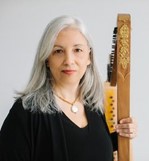 Christa Patton, historical harpist and early wind specialist, has performed throughout the Americas, Europe, and Japan with many of today’s premier early music ensembles including Piffaro the Renaissance Band, Early Music New York, Boston Camerata, The King’s Noyse, Folger Consort, Newberry Consort, Apollo’s Fire, Parthenia, ARTEK and Chatham Baroque to name a few. As a Baroque harpist specializing in 17th century opera, Christa has performed with New York City Opera, Wolf Trap Opera, Opera Atelier and the Opera Theater of Saint Louis.
Christa Patton, historical harpist and early wind specialist, has performed throughout the Americas, Europe, and Japan with many of today’s premier early music ensembles including Piffaro the Renaissance Band, Early Music New York, Boston Camerata, The King’s Noyse, Folger Consort, Newberry Consort, Apollo’s Fire, Parthenia, ARTEK and Chatham Baroque to name a few. As a Baroque harpist specializing in 17th century opera, Christa has performed with New York City Opera, Wolf Trap Opera, Opera Atelier and the Opera Theater of Saint Louis.
As an educator and scholar, Christa has served on the faculty of Rutgers University and the Graduate Center at CUNY. She is also the director of the Baroque Opera Workshop at Queens College, a workshop specializing in period-specific performance practice of 17th century musical drama.
In the recording industry, Christa has fulfilled both the role of recording artist and record producer. As recording artist she can be heard on Zefiro Recordings: Monteverdi Il quinto libro dei madrigali, ARTEK; Monteverdi: The Complete Madrigals, Book 7, ARTEK; ATMA classiques: Palazzo Romano, La Nef; Ex Cathedra Records: Venice and A Bohemian Christmas, Early Music New York; Dorian Records: Chacona, Ex Umbris; Stadtpfeiffer and Trionfo d’Amore e della Morte, Piffaro; Navona Records: Los
Ministriles in the New World, Waytes, Vespers, Back before Bach, Piffaro; Lyrachord Label: Istanpitta I, and, Istanpetta II, Early Music New York. As record producer: ATM: 17th century Italian motets,
¡Sacabuche!; Acis: In Sara Levy’s Salon, The Raritan Players.
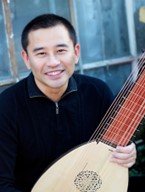 Hideki Yamaya, theorbo, is a performer of lutes, early guitars, and early mandolins based in Connecticut, USA. Born in Tokyo, Japan, he spent most of his career in the West Coast before settling in New England, where he is a freelance performer and teacher. He has a B.A. in Music and an M.A. in Ethnomusicology from University of California, Santa Cruz, where he studied with Robert Strizich, and an M.F.A. in Guitar and Lute Performance from University of California, Irvine, where he studied with John Schneiderman. He also studied with James Tyler at University of Southern California and with Paul Beier at Accademia Internazionale della Musica in Milan, Italy. In demand both as a soloist and as a continuo/chamber player, Hideki has performed with and for Portland Baroque Orchestra, Portland Opera, Santa Cruz Baroque Festival, Musica Angelica Baroque Orchestra, Los Angeles Master Chorale, Los Angeles Opera, California Bach Society, Oregon Bach Festival, Astoria Music Festival, Music of the Baroque, and Shakespeare’s Globe Theatre. He has given masterclasses and workshops at Yale University, University of California, Santa Cruz, Montana State University, Oregon State University, and Aquilon Music Festival.
Hideki Yamaya, theorbo, is a performer of lutes, early guitars, and early mandolins based in Connecticut, USA. Born in Tokyo, Japan, he spent most of his career in the West Coast before settling in New England, where he is a freelance performer and teacher. He has a B.A. in Music and an M.A. in Ethnomusicology from University of California, Santa Cruz, where he studied with Robert Strizich, and an M.F.A. in Guitar and Lute Performance from University of California, Irvine, where he studied with John Schneiderman. He also studied with James Tyler at University of Southern California and with Paul Beier at Accademia Internazionale della Musica in Milan, Italy. In demand both as a soloist and as a continuo/chamber player, Hideki has performed with and for Portland Baroque Orchestra, Portland Opera, Santa Cruz Baroque Festival, Musica Angelica Baroque Orchestra, Los Angeles Master Chorale, Los Angeles Opera, California Bach Society, Oregon Bach Festival, Astoria Music Festival, Music of the Baroque, and Shakespeare’s Globe Theatre. He has given masterclasses and workshops at Yale University, University of California, Santa Cruz, Montana State University, Oregon State University, and Aquilon Music Festival.
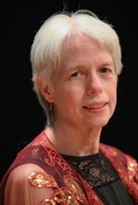 Christine Gevert, organ, virginal and direction, holds a master’s degree in organ and early music performance from the Hochschule für Musik und Theater, Hamburg, Germany. After earning a bachelor’s degree in music theory from the Conservatorio Nacional de Chile, she studied choral and orchestral conducting in Berlin and harpsichord in London. She has taught at the Berliner Kirchen- musikschule, the Universidad de Chile, and the Pontificia Universidad Católica in Santiago, Chile.
Christine Gevert, organ, virginal and direction, holds a master’s degree in organ and early music performance from the Hochschule für Musik und Theater, Hamburg, Germany. After earning a bachelor’s degree in music theory from the Conservatorio Nacional de Chile, she studied choral and orchestral conducting in Berlin and harpsichord in London. She has taught at the Berliner Kirchen- musikschule, the Universidad de Chile, and the Pontificia Universidad Católica in Santiago, Chile.
Ms. Gevert has performed in Europe, South America, and the U.S., appearing at the Washington Early Music Festival, the Berkshire Choral Festival, the Fringe concerts of the Boston Early Music Festival, and the Amherst Early Music Festiva, the Early Music Festival in Narol, Poland, the Auditorium Wanda Landowska in Paris, and the Metropolitan Museum of Art. She also performed at the International Festival of American Renaissance & Baroque Music at the Chiquitan Missions in Santa Cruz, Bolivia.
She has recorded for Carpe Diem and Alerce. She has led master classes and workshops in early music, harpsichord, and baroque vocal technique at music festivals in Germany, Chile and the U.S., and has taught historic keyboards at the Berlin Church Music School in Germany, and locally at Bard College at Simon’s Rock. She has authored and published more than eighty historical basso continuo realizations with the Swiss music publisher, Amadeus Verlag. The founder and artistic director of Crescendo and her own baroque ensemble Les Inégales, Christine is currently music director at Trinity Episcopal Church, Lime Rock, CT.
About the Performance
Most of you, our audience members, love the great oratorios, passions and cantatas by Johann Sebastian Bach, and Handel.
These works would not exist without Carissimi, who lived almost a century before them! The Italian 17th century composer established the oratorio to bypass the prohibition of public entertainment, which included opera performances, during the season of Lent. Carissimi’s Jephte is structured like the ancient Greek tragedy: a short prologue introduces the drama, followed by dialogues of the main characters as the action unfolds, interspersed with more narration, explaining the background of the story, and responses and reactions from the chorus, who also concludes the the story. The role of the narrator is taken on by different voices: a solo alto, bass and then soprano, and also duets, trios and a quartet. The two characters are Jephte, a tenor, and his daughter, Filia, a soprano. Her female companions speak as a soprano duet, echoed by the complete chorus. Like most early vocal works, there are no instrumental parts, except the bass, the bass continuo. This accompaniment was meant to be improvised to support and enhance the drama. In our version, the seven instruments alternate to emphasize the different situations in the drama: the dulcian and the percussive strumming of the theorbo create the call to battle; Jephte is accompanied by the organ and theorbo, while Filia is accompanied by the harp. The instrumental prelude and interludes were not originally composed, nor suggested by Carissimi. It is my hope that they will enhance the story, and create a few moments of space, to let the emotions evoked by Carissimi’s oratorio unfold even more.
Of course the story itself seems jarring, and even horrifying. As one of our own singers remarked: “This story is depressing, and even harder to take for a feminist!” On the other hand we generally can accept that drama works by portraying suffering, and the flaw of our human condition. I just wanted to point you to a few writings (there are many more!), that try to explain the background of Jephtah’s story:
- “A Nameless Bride of Death: Jephthah’s Daughter in American Jewish Women’s Poetry” by Anat Koplowitz-Breier (“Open Theology”, vol. 6, no. 1, 2020, pages 1-14)
- “Jephthah’s Daughter As Object Of Desire Or Feminist Icon” by Mikael Sjöberg (“Retellings—The Bible in Literature, Music, Art and Film”, pages: 27–44)
- “Did Jephthah Actually Kill His Daughter?” by Rabbi Jonathan Magonet (thethorah.com, Jun 25, 2015)
The anonymous French tune L’Homme armé – The armed man – was one of the most famous popular songs in the whole Europe of the late Middle-Ages and Renaissance. It resonated with the ever present fear that invasions and illness represented.
Over more than 100 years composers used this secular melody in their masses, which was a common practice. Among the most well-known L’homme armé masses areJosquin des Prez’ (who even wrote two settings), and Giovanni Pierluigi da Palestrina’s. The 12-voice mass presented today is attributed to Carissimi in a handwritten manuscript from 1842 found in the National library of France in Paris. Scholars since have doubted that the work is actually by Carissimi. It is the last mass based on this tune, and one of the largest, as it is written for three choirs. At times the polychoral setting, and the syncopated rhythmical texture enhances the feeling of ‘battling armies’. The tune is present in all five movements.
In true Italian early Baroque style, contrasts are achieved by so called “word painting.” One striking example of this is in the Credo, where the two words “resurectionem mortuorum” (resurrection [of the] dead) are set to loud and lively versus soft and slow music in quick succession.
The musical interludes by Carissimi’s contemporaries are meant to create some space between the mass movements. After all, they would never have been heard in a continuous performance.
By Christine Gevert
Crescendo and its programming
Crescendo is a national-award-winning music performance organization. Now in it’s 20th season, Crescendo has presented concerts year- round in northwestern Connecticut, the Berkshires, and the mid-Hudson Valley of New York. The organization is based at Trinity Church Lime Rock in Lakeville, CT.
Founder and Artistic Director, Christine Gevert, is celebrated for her innovative approach to programming and performance. Crescendo’s audiences are often rewarded with programs of rarely-heard and newly discovered works. Often Ms. Gevert uses original manuscripts to make her own performing editions for chorus, soloists and orchestra because there are no existing published editions. Frequently our programs feature early and contemporary music works alongside each other, creating a contrast for the listener. Eight new works have been commissioned for our chorus and vocal ensemble. Crescendo has presented ten U.S. premieres.
Crescendo’s innovative programming relies on a local base of dedicated and talented auditioned amateurs and professionals who make up the Crescendo Chorus and Crescendo Vocal Ensemble. Crescendo has its own Period Instrument Orchestra and Andean Ensemble, comprised of professionals from New York, Boston, Philadelphia, Washington DC and Hartford. These instrumentalists and the internationally recognized soloists who regularly collaborate with Crescendo bring the performances to a level comparable to the best ensembles in the country. Instrumental music ensembles and concerts with vocal soloists have been part of Crescendo’s programs since the beginning. Some of the performers have been: Julianne Baird (Philadelphia) soprano, Nicholas Tamagna (Oldenburg, Germany) countertenor, Peter Sykes (Boston) and Władysław Kłosiewicz (Warsaw, Poland), harpsichord, Chris Bellsucio (Boston), natural trumpet, Tricia van Oers, recorder, I Fagiolini Renaissance Vocal Ensemble (London, UK), L’Orchestre de Chambre Francaise (Paris, France), Peter Lekx (Montreal) baroque violin, Duo Alturas (Hartford) charango, viola and guitar, and Duo Les Inégales, traverso and harpsichord.
We are strongly committed to educational outreach―to our own singers, our audiences and local students. Talented local high school singers and young musicians are coached by Ms. Gevert as part of our “Young Artist Program”, and often play a part in our performances. She and members of the chorus visit local schools to work with students.
Artistic Director Christine Gevert is celebrated for her innovative approach to programming and performance: In 2014 Crescendo won the prestigious Chorus America / ASCAP Alice Parker Award. Today’s programming reflects some of the diversity and scope of music that Crescendo is known for.
